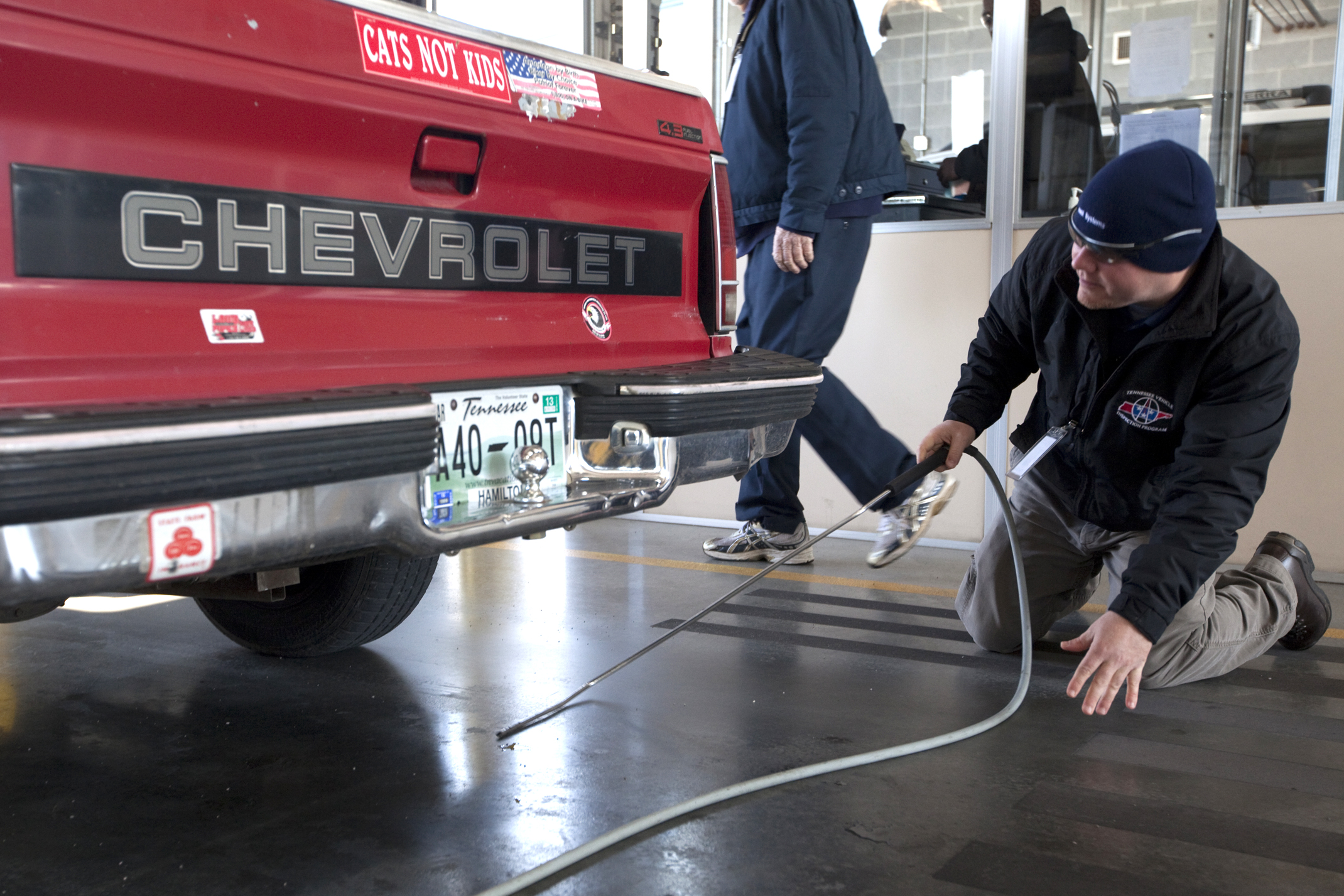NASHVILLE - A legislative proposal to exclude newer cars and trucks from annual emissions testing sounds good to vehicle owners and to state lawmakers, who whisked it through a Senate committee and House subcommittee last week.
But state regulators and the Tennessee Chamber of Commerce and Industry are nearly choking over the potential impact on existing and future businesses in six affected counties including Hamilton County, home to Volkswagen's assembly plant.
In addition to Hamilton, Davidson, Rutherford, Sumner, Williamson and Wilson counties, and Memphis, require vehicles to pass annual emissions tests to get tags.
The county and city governments adopted the tests and other measures to comply with 2009 federal ozone standards aimed at improving air quality and health.
Receiving a "non-attainment" designation from the U.S. Environmental Protection Agency can impact existing businesses or scare off new companies that might have to install costly pollution control equipment.
"We are opposed to the bill," Wayne Scharber, the Tennessee Chamber's vice president for environment and taxation, said last week.
The bill to exempt vehicles in the three most recent model years raised a dust storm in the House Subcommittee on Agriculture and Natural Resources and the Senate Transportation Committee last week.
"I understand that Volkswagen is under very stringent restrictions to stay within a certain [level] that EPA has put on them," said Rep. Curtis Halford, R-Dyer.
"If we stop doing this, is that going to put that particular facility in danger of being over the level that the EPA has given them ... and consequently will that cause them large expenditures to get back underneath their limit there?"
Officials with the Tennessee Department of Environment and Conservation outlined a chain of circumstances they said could affect Volkswagen and other companies in the six counties and Memphis.
Barry Stephens, director of the state's Air Pollution Control Division, said the state runs a complex model on sources of ozone emissions. The EPA awards credits for certain actions to keep down the emissions.
"If you remove certain model years [of vehicles], then they reduce the amount of credits you get for the reduction," Stephens said. "So if you remove three years, then we've got to find those tons [of emissions] somewhere else."
That could come by requiring heavier vehicles now exempt from emissions testing, he said, or from requiring "stationary" source of emissions -- power plants, heavy industry and petrochemical manufacturers -- to cut back.
But Guenther Scherelis, spokesman for Volkswagen Chattanooga, said in an email he didn't see much impact for the carmaker from the bill.
"This provision only allows vehicle owners an exemption across the board," he said. "It should not affect the emissions level as a whole -- [the] reason being new cars don't emit above the standards. I don't see this affecting Volkswagen manufacturing directly."
Bob Colby, executive director of the Chattanooga/Hamilton County Air Pollution Control Bureau, said Friday that he had not seen the legislation.
"I just know that as part of our EPA-approved state limitation plan, anything we lose out of it from legislation we have to make up from somewhere else," he said.
On Wednesday, members of the House subcommittee complained that despite low emissions from newer vehicles, excluding them from testing would force a reworking of the model and the credits.
Rep. Andy Holt, R-Dresden, attacked the EPA for "wasteful" and "nuisance" rules.
"I have a little acronym I use for EPA quite often. It's Ending Productive Activity often. And that's what they do," he said.
Stephens said there's a "certain amount of failure" even in new cars or cars that are 1 or 2 years old.
"If you don't run the program for those vehicles, then you don't get that reduction credit for EPA, and this is an EPA-required program," Stephens said. "They do hold all the cards from that perspective."
"Somebody has to pay," he cautioned. "If you get those reductions from industry, they have to spend money on additional controls."
The bill's sponsor, Rep. Jeremy Durham, R-Franklin, said he's been told that less than 1 percent of vehicles less than 3 years old fail emissions tests.
The bill later popped up in the Senate Transportation Committee where the sponsor, Sen. Jack Johnson, R-Franklin, outlined concerns raised in the House.
"The more I hear you talk, the more my blood pressure is going up," said committee Chairman Jim Tracy, R-Shelbyville.
He demanded to know what the state risks if it refused to comply with EPA standards. Johnson said the federal government's ultimate weapon is withholding transportation money, which pays 80 percent of the cost of most state highway projects.
Tracy said he didn't think federal officials would do that. The bill passed on a 9-0 vote but will be held in the Senate Calendar Committee as lawmakers get more information.

